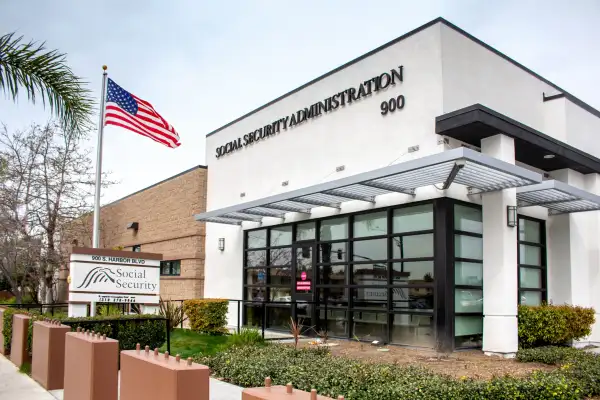Social Security Is Running out of Money Faster Than Expected

The future for U.S. Social Security just got even bleaker.
On Tuesday, the Treasury Department said that the Social Security trust fund reserves have been significantly affected by the COVID-19 pandemic and the 2020 recession. The way things are going, the funds will only be able to pay scheduled benefits on a timely basis until 2034.
The Social Security Administration's website has stated plainly in the past that Social Security is "not sustainable over the long term at current benefit and tax rates." Yet millions of Americans rely on these safety net programs that are now expected to run out of money a year earlier than previously expected. This is in large part due to the devastating economic impact of the pandemic, during which the labor force shrank, lowering payroll taxes that help feed the reserves.
According to the new projections, the Old Age and Survivors Trust Fund, which provides monthly payments to retired workers, will only be able to pay scheduled benefits until 2033, one year earlier than previously expected. After that, there will only be enough money to pay 76% of scheduled benefits. Meanwhile, the Disability Insurance Trust Fund will only be able to pay scheduled benefits until 2057, then just 91% of scheduled benefits will be able to be paid. That's eight years earlier than previously expected. Hypothetically, a combination of all of these reserves is expected to be depleted in 2034.
Medicare payments will be able to pay scheduled benefits until 2026, the same year that was last reported, according to the report.
The report reflects expectations that COVID-19 has permanently lowered worker productivity — and gross domestic product (GDP), a benchmark for economic output — by 1%. It also takes into account projections for elevated pandemic-related mortality rates through 2023 and lower immigration and childbearing in 2021 and 2022.
Across the country, people rely on Social Security programs to make ends meet. According 2020 research from the National Institute on Retirement Security, 40% of older Americans rely completely on Social Security income in retirement to meet all of their expenses.
But news that the country's safety net programs are in danger is not at all new. The amount the program pays out in benefits has exceeded how much money it brings in via income like taxes since 2010.
The program has been financially unsustainable even as retirees have had to wait longer to receive their benefits. In the 1980s, the age at which people could collect their full benefits was pushed back from 65, gradually rising to 67.
Throw in that we're living longer than ever and health care costs are rising, and the situation looks pretty dire.
Money has previously reported that financial planning experts don't necessarily think Social Security will one day disappear, but that it will change. The age at which you can collect your full benefits may be pushed back even further. Or perhaps the funding system could be expanded so that wages above $400,000 are subjected to Social Security taxes, instead of maxing out once people earn $142,800, as President Joe Biden proposed when he was running for office.
Either way, it's not wise to completely rely on Social Security. Even if the programs stick around, you likely can't live off of the benefits alone in retirement. So it's important to save on your own by investing in a retirement savings account like an employee-sponsored 401(k) (and contribute as much as your employer will match) or, if you don't have a savings plan through work, open your own individual retirement account (IRA).
Even if you can't put aside a ton of money right now, financial experts say that the most important thing is to start saving as early as you can. Fidelity encourages savers to try to put away 15% of their income annually so that you can have 10 times your income saved by the time you’re 67. If that's not possible, start which whatever amount you can and try to up the amount you save each year.
This will help you take care of future you — even if the Social Security programs can't.
More from Money:
Believing This Big Social Security Myth Could Put Your Retirement at Risk
Do 401(k)s Have Fees? 40% of Account Holders Have No Idea
Baby Boomers Are Uniquely Poised to Cash in Big on Their Homes
